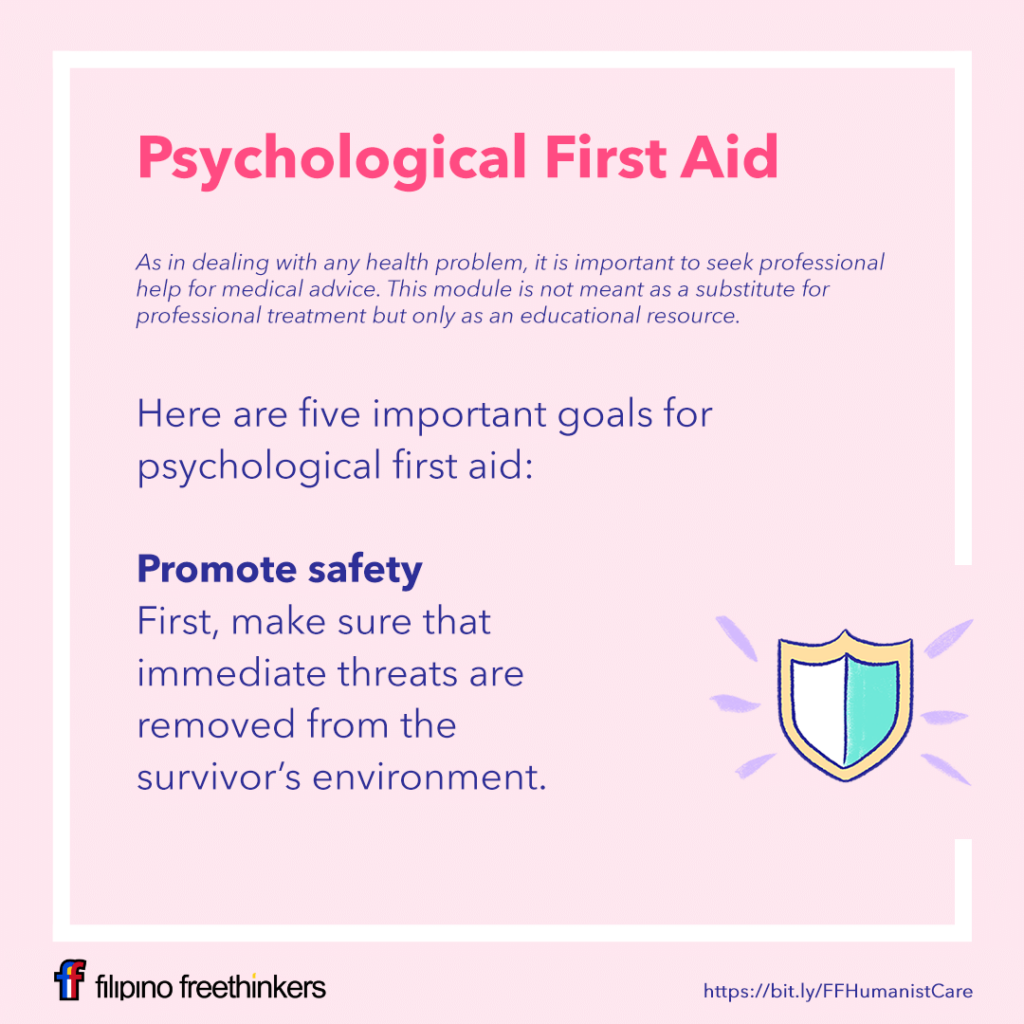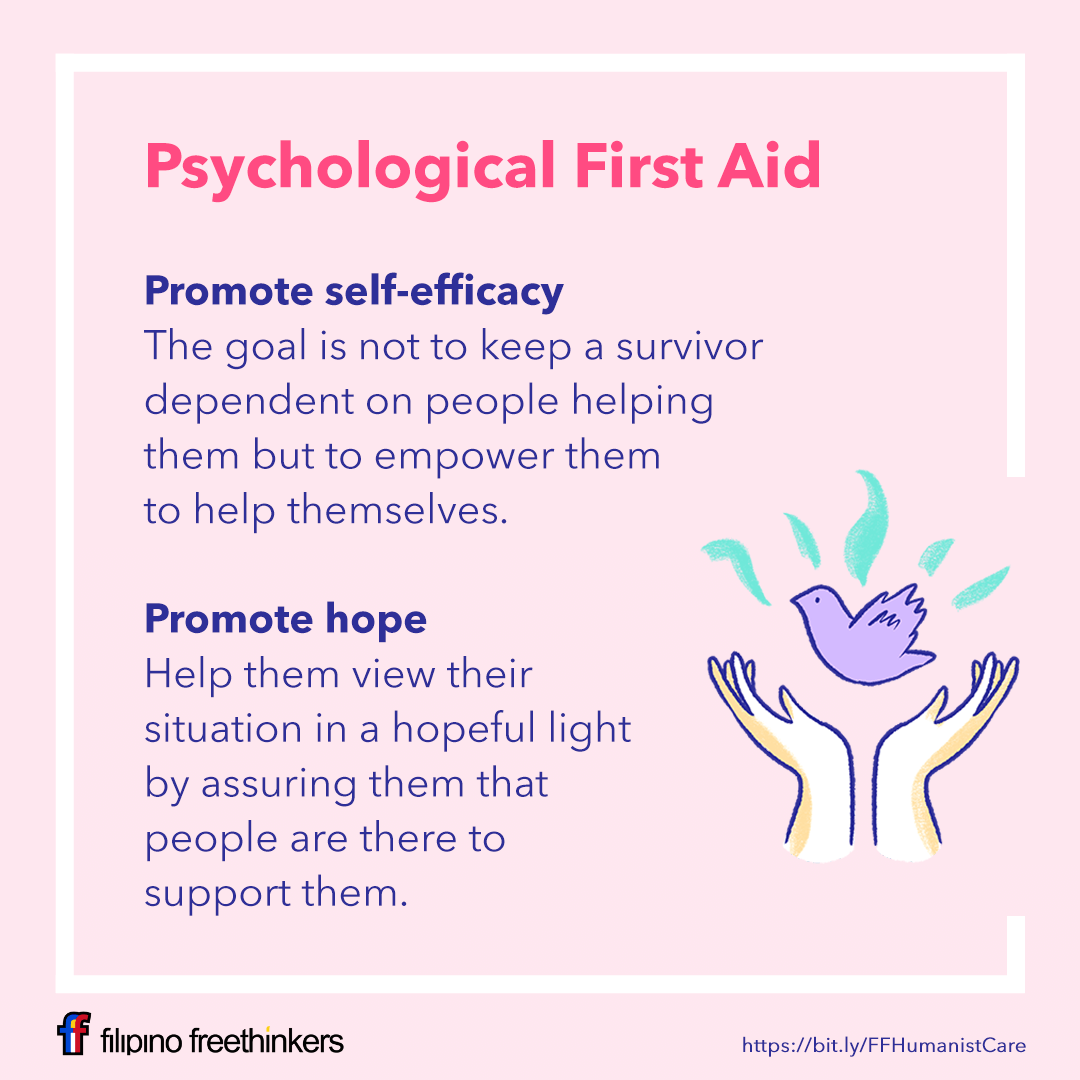
Humanists and the non-religious can sometimes be at risk of abuse, especially in conservative religious countries such as the Philippines. In line with this, we are sharing excerpts from a series of educational modules we are producing in collaboration with Humanists International. We hope this module can help people help a humanist in need.
Religious trauma syndrome
Humanists, especially those who had to leave their childhood religion, can experience psychological stress from various fronts. One source is dealing with religious discrimination in their present life: from microaggressions against atheists to outright deadly persecution of non-believers. Another source is having to deal with trauma from leaving their former religious communities. This latter example has been termed “religious trauma syndrome” (RTS), attributed to Dr. Marlene Winell.
Comparing RTS with post-traumatic stress disorder (PTSD), people who suffer from RTS deal with psychological trauma even in the absence of an immediate threat. In the case of RTS, the trauma may come from two things brought about by religion: teachings by the religion and abuses from the religious community. In the first case, religions may have teachings that can be harmful to a person, such as negative beliefs about LGBT persons. In the second case, religious communities may subject a person to physical and sexual abuse, which may be justified by members of a religious community using patriarchal and authoritarian religious beliefs.
Why we help others as humanists
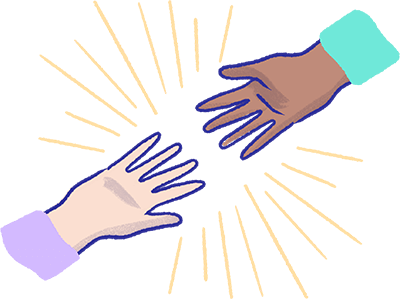
At its core, humanism is a philosophy that affirms the dignity of humanity. As humanism grows as a movement and an identity, we slowly work toward a better world not just for humanists but for humans in general. However, because of the challenges humanists face in society, we must also learn to care for ourselves and our own. In recognizing these challenges and learning how to respond to them, we first assess if we ourselves are safe and then we seek to understand how we can help those in need. Whether as an individual or through a global organization, if we are to uphold the dignity of humanity, helping others is one of the most important things we can do as humanists.
Helping humanists
As in dealing with any health problem, it is important to seek professional help for medical advice. This module is not meant as a substitute for professional treatment but only as an educational resource.
Psychological first aid
As an immediate response to severe psychological trauma, concepts such as “psychological first aid” may help someone to cope in the short term. It is often deployed in the aftermath of extreme events such as disasters. Certain principles are laid out by the United States National Center for PTSD for psychological first responders, who are often from disaster relief organizations. We may draw good practices from these principles any time we deal with people suffering from severe psychological trauma. In addition, the Australian Psychological Society’s guide outlines five important goals for psychological first aid:

Promote safety
First make sure that immediate threats are removed from the survivor’s environment. If this is impossible (such as in cases where the threats are a domestic presence in a survivor’s home) consider reducing these threats by finding relocation opportunities. The survivor should also be introduced to professional legal or medical attention when necessary. It is key that the survivor’s basic needs, such as food and clothing, are met should relocation be attempted.

Promote calm
Escape from a traumatic situation can be disorienting and feelings of distress may linger even when the threatening environment is removed. Make sure to minimize stressors to the survivor, such as loud noises. If the survivor is in a condition to share, provide them with an accepting and listening environment. If they would rather listen, hearing stories from other survivors can help them process their own situation.
Survivors may be difficult or lash out at the people helping them. This can occur when they are not used to spaces that are non-threatening. Exercise patience with them and maintain compassion.

Promote connectedness
In cases where a survivor is escaping from threats in their own homes, such as from parents or intimate partners, be mindful that they may also be leaving their closest social connections. If the survivor has remaining contacts, such as friends and relatives, help them get in touch. Introducing the survivor to support groups can also help them ease into making new and safe social connections.

Promote self-efficacy
The goal is not to keep a survivor dependent on people helping them but to empower them to help themselves. Organizations, however vigilant, can’t always be there to help. Help the survivor make their own informed decisions about what to do in order to keep themselves safe in the future and how to meet their needs.
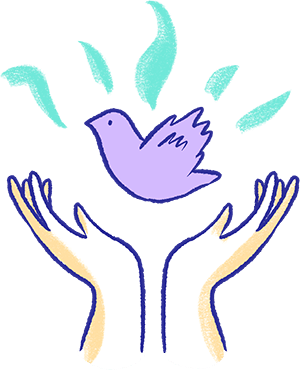
Promote hope
When a survivor has been in a traumatic situation for an extended period, they can harbor feelings of helplessness and despair. They might not be familiar or even comfortable with having positive thoughts about their life. Help them view their situation in a hopeful light by assuring them that people are there to support them. It is crucial that a survivor understands that whatever they are feeling is normal and that people can recover, move on, and live the rest of their lives.
It is important to emphasize the part about connecting survivors to support networks and professionals that can help them receive appropriate care. The most important role of laypersons around survivors of religious trauma is to provide immediate comfort by being there to listen without judgment. Psychological trauma is a very delicate matter and one must tread with extreme care and avoid giving what may be seen as counselling, treatment, or professional medical advice unless you have the appropriate training to do so.
Organizing against religious discrimination
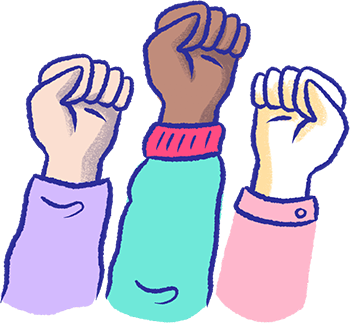
The negative effects of religion can range from small microagressions to extremely traumatic experiences. Humanists can be proactive and lessen religious trauma and discrimination by first recognizing that the harm of religion is often inflicted in cultures where religion goes unquestioned and unchallenged. By simply challenging this culture and raising consciousness that being religious is not the only way to live, humanists can help mitigate the worst effects of religion on society.
This is where humanist and non-religious groups shine. Individuals acting to fight against religious discrimination can be effective. They can intervene in small personal matters, such as discrimination in the workplace. However, individuals can also become targets that are easier for powerful religious groups to single out. When humanists organize, they can create a growing movement that can outlast any single member. This way, the mission of humanists for the recognition of their rights in society continues beyond one person.
Some activities humanist groups can do are awareness campaigns (to show our communities that humanists exist and are not threats), fundraising drives for humanists in need of food or shelter, and even protest actions against governments and corporations that discriminate against humanists. In times of great crisis and persecution, humanist movements can also organize to find asylum for victims of religious persecution so they may find sanctuary in other countries.
Next steps
Building a movement with humanist care
As with any organization, humanist groups need to be sustained. We do so by building awareness and organizing activities. These can be as simple as the regular meetups Filipino Freethinkers organizes. These meetups act as a venue for fellowship and camaraderie, not dissimilar from religious groups in that respect. They also keep the membership aware of current issues in society and how non-religious people fit into them. As more members get involved and invested, humanist groups can work to keep the momentum over years.
By gaining recognition as a safe space for non-religious people, a humanist group can slowly build reputation and status in society, such that it can demand the attention of powerful elements of society. Despite being a small group in a Catholic-dominated country, in Filipino Freethinkers’ time in human rights advocacy, we have had the audience of community leaders and key members of the government. We were able to do this by strengthening and supporting each other first as a community, before going out into the world of advocacy.
Humanist groups must also recognize the very real material need for funds, whether they be from grants or direct contributions from members and allies. These funds can be used to support the operations of the group as well as projects, such as legal defense for humanists and social support for survivors of religious trauma.
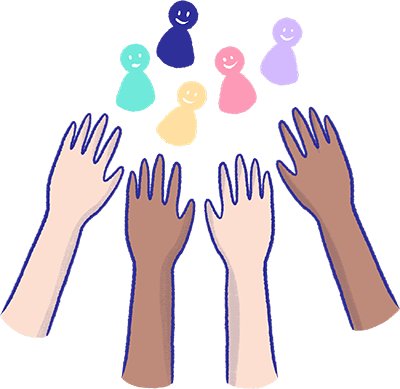
Other groups and organizations you can support
Humanists International is the largest humanist group in the world and is recognized by the United Nations. They represent humanist and secularist interests in the global stage. Among their members are independent humanist organizations around the world.
Various human rights groups around the world also fight for religious freedom. These include Human Rights Watch, Amnesty International, Freedom From Religion Foundation, and the American Civil Liberties Union. Certain international missions, such as embassies and consulates, may also award grants to humanist groups in the interest of religious freedom and human rights.
Read more content and check the references of these excerpts by downloading the module:


